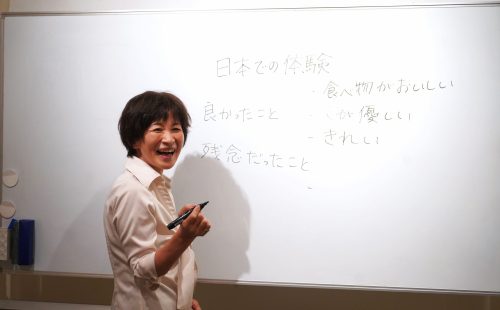|
Immigration Rules in Japan for International Students

Have you finally decided to take the risk and enroll in a Japanese university? If that’s the case, all that’s left to do is ensure your safe admittance by doing the appropriate actions. Many international students who are applying to study abroad could experience anxiety at the thought of gathering paperwork and waiting. But once you arrive at the country of the rising sun, you’ll realize that the time you spent waiting was well worth it.
Immigration Rules in Japan for International Students
Obtaining the necessary documentation is the major responsibility of an application during the full immigration procedure. Japanese government processes are extremely organized. You may lose a single piece and be weeks behind, so don’t worry! Potential schools will be happy to help you out during the process to make sure everything is in order if you’ve previously made contact with them. Here is a brief overview of the steps you would take to become an immigrant:
Prior to visiting Japan
You’ll discover that each educational institution has its own application processes if you’ve looked into Japanese language schools, colleges, or even universities. These colleges typically want the same application materials as any other school in your nation. Your chosen school will screen you for admission after receiving the required payments from you.
Getting a Student Visa
You will get notification from your institution of your acceptance, after which you must complete the enrolling process and pay the first semester’s tuition. Your application for a student visa would then be processed by your institution! Obtaining a Certificate of Eligibility (COE) is necessary for this. In the application procedure, Japanese schools often have representatives acting in your place. Of course, you could always ask your friends or family in Japan to help you with the application process!
Step 1. Gather Documents for Your COE
You will need to acquire evidence while you wait that you can cover all costs and support yourself while you reside overseas. A bank balance certificate for your savings account or certificates of deposit are related papers. It would be a good idea to produce this paperwork if available since you could also require it while requesting a COE.
Step 2. Wait for your COE
Your papers will be delivered by your proxy to a regional immigration office in Japan. You’ll only have to wait till they provide your COE and enrollment authorization to you. Once you have your COE, go to the Japanese Embassy or Consulate in your area to submit your visa application.
Step 3. Submitting the COE and further requirements
You must provide your passport, a form of picture identity, and the visa application together with your COE. Since it might take up to 5 weeks to complete and issue your visa, the waiting game will continue. Your local consulate will determine when you get the paperwork, and it might take up to 2 working days. You may review your curriculum until then, and then you’ll be on a plane to Japan!
When they arrive in Japan
You’re nearing the start of your time studying in Japan! You must provide your passport, COE, and the visa that was issued upon entering the nation. The acceptance letter from the school you enrolled at may also be required, if it is accessible. Keep in mind that the immigration procedure at the airport in Japan that you are visiting is unique.
Gain Access to Your Residence Card at the Airport
Check to see whether you’re flying into Narita, Kansai, Chubu, Haneda, New Chitose, Hiroshima, or Fukuoka. Here, authorities will stamp your passport with a landing permit before issuing your residency card. In some airports, staff members stamp your landing permission with a seal that says you will get your residency card later. This card must always be carried by you!
Obtain a Personal Number Using Your ID Card
To register as a resident, you will need your residency card (or a passport carrying the official stamp of a later issue). You must present your residency card to the municipal office close to your place of residence in Japan within 14 days of your arrival. There, after completing the registration procedure, you will be given a card with your special 12-digit social security number and tax identification number, or “individual number.”
Every person in Japan has a unique number. To conduct official tasks at the municipal office, such as filling out applications for health insurance, you will need yours. When you start working part-time and get money from family members back home, as well as when you visit the bank, you must provide this number. Keep your personal identification card secure at all times.
To study in Japan
You may relax and look forward to your lessons after you’ve moved into your new residence and received your official individual number. Remember that your only goal in Japan as a student is to learn. You may ask for authorization to participate in activities unrelated to your primary status of residence if you want to strive to broaden your experience.
The Regional Immigration Services Bureau for advice
Upon application for landing authorization, permission is often given to engage in extracurricular activities outside of school. If you decide to change your mind after starting your studies, you may go to the regional immigration services office that is closest to you. Given that they deal with practically all issues relating to international students (outside of your education, of course), you should anticipate many trips to their office.
Students who may need to leave Japan briefly can be accommodated by a regional immigration services office, who can even prolong their stay. You may get a re-entry permission from this office if you need to return to your home country. If you are certain that you will return to Japan before the duration of your stay ends, you may proceed without seeking for such a permission.
On that topic, you must be accountable enough to ask for a stay extension when the time comes in our office. This prevents unauthorized habitation.
Conclusion
At first, going to Japan to study can seem like a pipe dream. Once you reduce the whole immigration procedure to a basic issue of filling out application forms, obtaining your necessary papers, and waiting, it will seem much more practical. Prior to starting lessons, the processing period may be many months. You could always use that downtime to improve your Japanese. You can do this!



